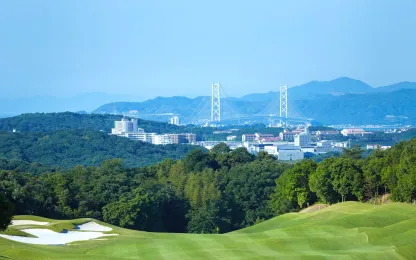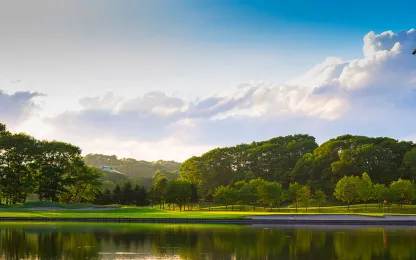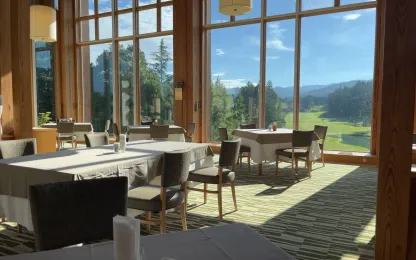From Tokyo, 1 hour 45 minutes from Haneda to Fukuoka airport, or 5 hours by rail from Tokyo Station to Hakata Station.
From Osaka, 1 hour 15 minutes from Itami Airport to Fukuoka Airport, or 2 ½ hours from Shin-Osaka to Hakata Station.

Kagoshima Prefecture, located at the southern tip of Kyushu, is a region steeped in history, natural beauty, and cultural heritage. As the home of the powerful Satsuma samurai clan, Kagoshima played a crucial role in Japan’s modernization and was one of the first prefectures to engage in foreign
Fukuoka boasts a rich history, renowned for its unique food culture and vibrant nightlife. Situated just a five-hour train ride away from Tokyo, it stands as the largest city in southwest Japan and serves as a prominent destination within the Kyushu region. Its proximity across a narrow strait from Korea has endowed Fukuoka with a diverse history, having been exposed to both Mainland Asia and the Western world while the rest of Japan remained isolated.
Established in the 7th century, Fukuoka has long served as a gateway to global influences, bearing significant cultural imprints from China and Korea. Beyond its plethora of golf courses, there's a wealth of attractions to explore, offering an exciting and lesser-known side of Fukuoka. So, if you seek a respite from golfing, there are ample options to discover the off-the-beaten-track wonders of this dynamic city.
Renowned as the nightlife hub of Kyushu, it offers an array of izakayas, bars, and nightclubs. Nestled between two rivers, the Nakasu district has a historic legacy from the Edo era, initially known for its extensive red light district. Today, it's celebrated for its yatai, vibrant open-air food stands illuminated in an array of colors at night. Wander through this neon-lit street and indulge in Fukuoka's local delicacies.
For souvenir hunting, Canal Street Hakata is a must-visit. This mall, built around an artificial canal, hosts more than 250 shops, two hotels, and multiple theaters, ranking among the world's largest malls.
Though now in a state of disrepair, the remnants of Fukuoka Castle stand grandly, once boasting 47 turrets and a surrounding moat. Preserved as a park, visitors can still relish its stately presence.
In the heart of the city, the ACROS Building stands as an architectural marvel resembling a hanging garden. Housing over 50,000 plants, it offers a serene green retreat amidst the urban landscape, inviting visitors to immerse themselves in nature's embrace.
Hakata Dontaku stands as one of Fukuoka's premier attractions—an annual port festival held in late spring. The festival features captivating parades adorned in traditional dress and showcases the enchanting te-odori dancing, drawing in a staggering 2 million visitors who gather to revel in the festivities each year.
During the initial fortnight of July, Hakata Gion Yamakasa engulfs the city in a jubilant ambiance. The festival's highlight culminates in an early morning spectacle—an exhilarating race among teams bearing parade floats weighing up to one ton. This time-honored tradition, celebrated for over 700 years, has earned recognition as an important intangible cultural asset by the Japanese government.
As winter sets in, Canal Street Fukuoka becomes aglow with Christmas illuminations, creating a festive and enchanting atmosphere. A grand paper art Christmas tree suspended above the decorations adds to the holiday charm.
For those arriving during Kyokusai no en in early spring, a glimpse into the Heian era's shrine ritual unfolds—a reenactment where participants, donned in traditional attire, compose poems by the stream while awaiting the arrival of a floating sake cup. Early spring also unveils the beauty of 6,000 plum trees surrounding the Dasaifu temple.
Irrespective of the season, Fukuoka promises an array of enjoyable and thrilling experiences for all who visit.
Fukuoka is renowned for its delectable cuisine, blending traditional Japanese flavors with an international twist—a heritage cultivated over centuries as the gateway to the world.
During the winter season, a must-try dish is Motsunabe (もつ鍋), a hotpot native to Fukuoka. This winter specialty features beef or pork intestines simmered in a broth infused with garlic and chili peppers—an ideal choice for savoring in the chilly weather. Completing the dish with the addition of champon noodles ensures a hearty and satisfying meal.
Ramen varies across regions, and Fukuoka boasts its own distinct version: Hakata ramen. Characterized by its straight, fine noodles immersed in a pork bone broth, it offers a richer and creamier taste compared to other prefectures' renditions.
Another delicacy to indulge in is Mentaiko (明太子), pollock roe seasoned with chili peppers. Originating from Korea and introduced through Fukuoka, Mentaiko has become a staple in Japanese cuisine. While it's easily available for individual tasting, the true essence comes when combined with other dishes—be it mentaiko pizza or mentaiko onigiri, offering a delightful fusion of flavors.
Fukuoka's iconic open-air food stands, known as Yatai (屋台), represent a quintessential symbol of the city. Typically accommodating seven or eight people, these stalls offer a delightful outdoor setting to relish simple yet satisfying dishes. Spread across Fukuoka, dozens of Yatai offer diverse culinary experiences, but the southern end of Nakasu Island stands out as the prime location. Positioned amidst the city, this area boasts a picturesque row of approximately 20 Yatai, gracefully lining the waterfront.
Yatai dining presents an opportunity to savor various dishes, including grilled chicken skewers (yakitori), hot pot (oden), and the renowned Hakata Ramen. This local noodle dish features relatively thin ramen noodles immersed in a flavorful pork bone-based soup (tonkotsu). Complementing these delicacies, a selection of alcoholic beverages is available, creating a convivial atmosphere that allows visitors to connect with locals
3. Ogori Country Club
4. Yasu Kogen Country Club
5. Moonlake Golf Club Kurate Course

Perched in the western hills of Kobe, Zuien Country Club Nishi-Kobe Course combines convenience and scenery in one refined package. Designed by Robert...

Hokkaido Golf Club presents two contrasting but equally captivating 18-hole experiences that challenge and inspire golfers of all levels.
The Eagle...

Hotel & Resort Nasu Kasumigajo Golf Club is an 18-hole, 7,010-yard par-72 championship course set against the natural beauty of the Nasu Forests...